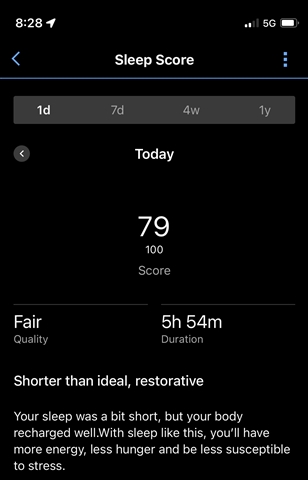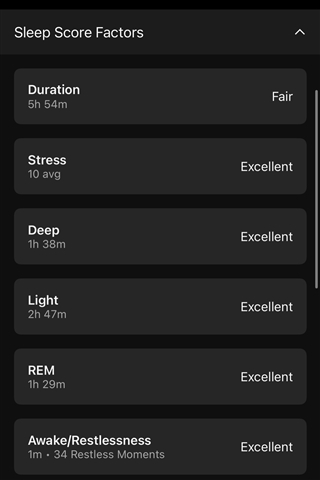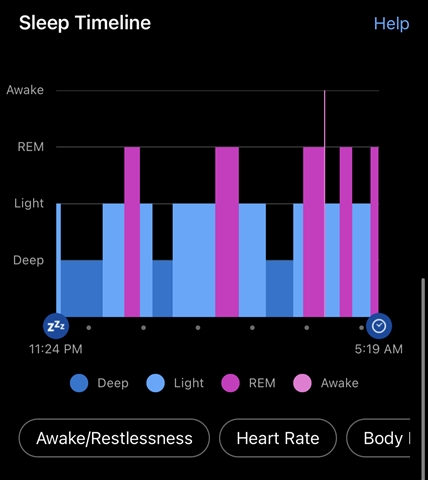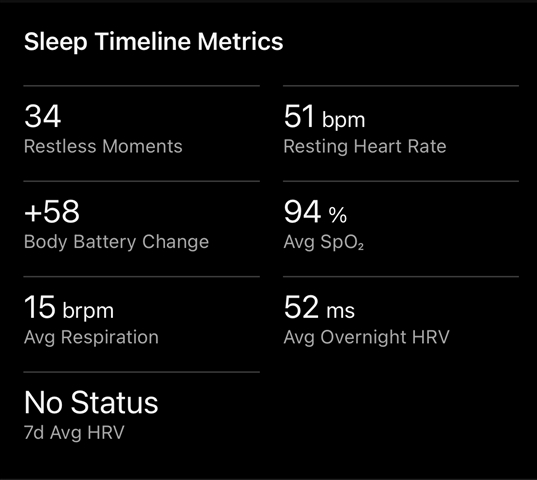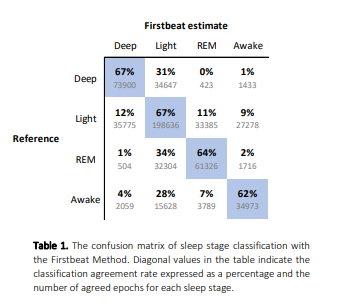I only need 6 hours of sleep per night, but my new Garmin Epix 2 keeps telling me that my sleep quality is "Fair" due to the number of hours of sleep, even though my other sleep metrics (like deep sleep, REM sleep, etc) are all excellent. Two questions:
- Is there any way to manually adjust the number of hours of sleep per night that the algorithm expects? I noticed that I can override several of the defaults, like heart rate zones for example. Is there a way to do this with sleep?
- How does the sleep quality affect other calculations, especially the recovery time metric? I just did a 45 minute run and it is telling me 72 hours recovery time. I feel great and ready for another run. Is the recovery time affected by my low sleep duration, or is it due to other factors like my HR during my run?
Some background. Most people require 7-9 hours of sleep per night to function optimally, but not everyone. Sleep needs per person fit into a normal distribution (bell curve). The 7-9 hour recommendation is based on what 95% of us require (2 standard deviations), which is typical for most statistics-based recommendations. But 5% of us fall outside the normal range: 2.5% require less than 7 hours and 2.5% require more than 9.
I only need about 6 hours of sleep. I had this confirmed by an MD sleep specialist who who treated me for insomnia. One of the recommendations was to stop trying to sleep so long. If I succeed in sleeping too much one night, then my body reaches stasis by not allowing me to sleep the next night. For example, on the occasions that I am able to sleep 8 hours, the next night I will wake up after 4 hours. It doesn't matter what time I go to sleep or if I exercise, relax before bed, stay off devices, avoid alcohol and caffeine, etc. Those are all great and it's important for me to follow them just as much as everyone else does, but they don't make me sleep longer.
Sleep researchers have observed that people who need less sleep tend to get the same amount of deep sleep and REM sleep as everyone else. They just get less light sleep in between. This appears to be the case for me, according to my Epix 2. I attached some screenshots from last night. All nights look about the same as this one, since I started wearing the watch a week or two ago. All of my "Sleep Score Factors" are "Excellent", except for "Duration" which is "Fair"
Is there any way to customize the Epix 2 for users with unusual biological sleep requirements?
I really enjoy the sleep tracking, and it has really encouraged me to practice good sleep hygiene. I haven't tried bad sleep hygiene since getting the watch, but I am sure that whenever I used to use devices before bed and all that stuff, my deep and REM sleep suffered and I woke up feeling exhausted. I am already sleeping better because of the Garmin, even though the sleep score metric is inaccurate. It's just that I worry that other metrics like recovery time might also be inaccurate.
Thanks,
Scott
